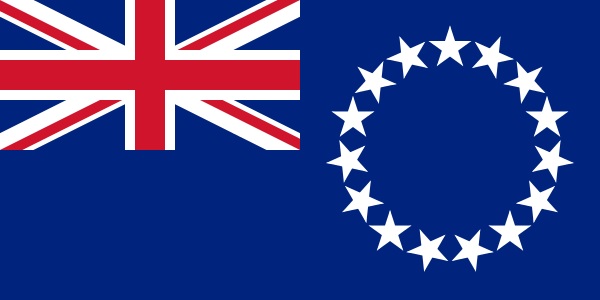The Cook Islands Trust – The most powerful Asset Protection Trust?
The Cook Islands trust is largely regarded as the most powerful trust in the world, but there can be issues with this set up if the grantor and/or the trustee does not operate with foresight and due diligence.
A recent New York supreme court ruling brought assets put in a Cook Islands trust back to US jurisdiction. The case may be overruled (as the supreme court in NY is actually a lower court) but there is are a few important takeaways from this vignette, written by this lawyer.
1. You have to move assets into a trust BEFORE there is a problem; a lawsuit, a divorce, a foreseeable bankruptcy.
2. The physical location of the transfer, the assets, and the persons involved is highly relevant.

Cook Islands Trusts for Asset Protection
Southpac is a trust company that operates in several non-U.S. jurisdictions, including the Cook Islands and Nevis. Not by coincidence, the Cook Islands and Nevis have aggressive asset protection laws that seek to attract international asset protection trusts.
A basic planning tenant for a non-U.S. asset protection trust is to use a trust company that has no connection with the U.S., so that a U.S. court cannot obtain jurisdiction over them to compel them to turn over assets in their control. Thus, for example, the use of affiliates of banks and trust companies with U.S. offices is discouraged.
The idea being that if you transfer assets outside the control of the US, the courts in the United States no longer have legal precedent to reach out and take your assets from you.
Unfortunately for Southpac, a recent New York Supreme Court case found it to be subject to New York jurisdiction in regard to a Cook Islands trust it is administering as trustee. Generally, in personam jurisdiction in the U.S. can be avoided by restricting contacts with that jurisdiction so that they do not cross the threshold of minimum contact.
Southpac believed it did not have the requisite contacts in New York. In particular, Southpac noted that it:
1) does not own, lease or have any other interest in any real property located in New York; 2.) does not have an office in New York; 3.) does not have a bank account in New York; 4.) does not have any officers or employees in New York; 5.) does not have a telephone number in New York; 6.) has never filed a lawsuit in New York; 7.) has no investments in any business located in New York; 8.) is not licensed to do business in New York; 9.) has never warehoused or stored inventory or supplies in New York; and 10.) does not advertise in New York.
The case at issue involved whether the settlor of the trust fraudulently conveyed assets to the trust so as to defeat the interests in those assets of the settlor’s divorcing spouse. The court’s opinion notes several facts that it believed creates jurisdiction for Southpac in New York. It it is not clear which particular items were critical for the finding, and whether any one of them was deemed sufficient or only all together gave rise to the requisite minimum contacts. These items included:
A. That the transferred assets were originally located in New York;
B. An allegation that Southpac participated in the fraudulent conveyance;
C. That Southpac enlisted the aid of the settlor’s New York broker;
D. That Southpac has an interactive website which invites and promotes fraudulent conveyance transfers; and
E. The transfer occurred after an action with the settlor’s spouse had already commenced.
Some comments on the case:
A. If the mere existence of a website by a business is enough to subject the owner to personal jurisdiction in any jurisdiction with access to the Internet, one has to question whether the concept of in personam jurisdiction has any limitations in today’s world.
This is one of the reasons why it’s important to consider even something as seemingly trivial as a domain registration or server farm in a strategic jurisdiction. You might not be able to consider thoroughly all the angles of your asset protection plan, and thus a professional may be able to help you with this.
B. This is only a lower court case, and thus has little precedential value elsewhere. The finding is subject to appeal and possible reversal. Note that in New York, the “Supreme Court” is not the highest court in the state but instead is a lower court only.
This is an important point, but nonetheless, this case shows the direction in which US courts may be headed. Do your asset protection planning before there is a problem.
C. Even if it is subject to New York jurisdiction, unless the trustee has assets in the U.S. that a New York court can reach or unless it has offices in jurisdictions that will enforce foreign (i.e., New York) judgments, as a practical matter there may be little the New York court can do to enforce its decrees against the trustee.
If you want to limit the amount of your exposure to the US courts, simply remove all the assets from US soil. This is obviously impossible to do with assets such as real estate located in the United States – but is very easy, legal and possible to move liquid funds offshore, to be held in a foreign trust or foreign company and foreign bank account.
D. As a general matter, foreign asset protection trusts work best if they are established at a time when there are no significant pending or current creditors. If established when creditors are already on the scene, they are less effective and may create problems for those who assist in their creation.
Weitz v. Weitz, 2012 NY Slip Op 30767(U), N.Y.Sup.Ct. No. 016811-08 (March 22, 2012)
This is nothing new, fraudulent transfers of assets that are designed to “hinder or delay” creditors have, and will continue to face problems. A Cook Islands trust is still an excellent planning tool. This case is far from over, time will tell if the trustees will hand over the funds to US courts, or they will fulfil their fiduciary duty within the Cook Islands to safeguard the assets of the beneficiary.
More than anything, this case highlights the importance of protecting your assets before there is a problem. Take action when it’s sunny outside… you may never know when storm clouds may appear on your horizon. By then, it may be too late.
Asset protection planning can be useful, and you might not need a complex trust set up. If you need personalized advice on how to protect your business and personal finances, check out how we can help you or email us at [email protected].




